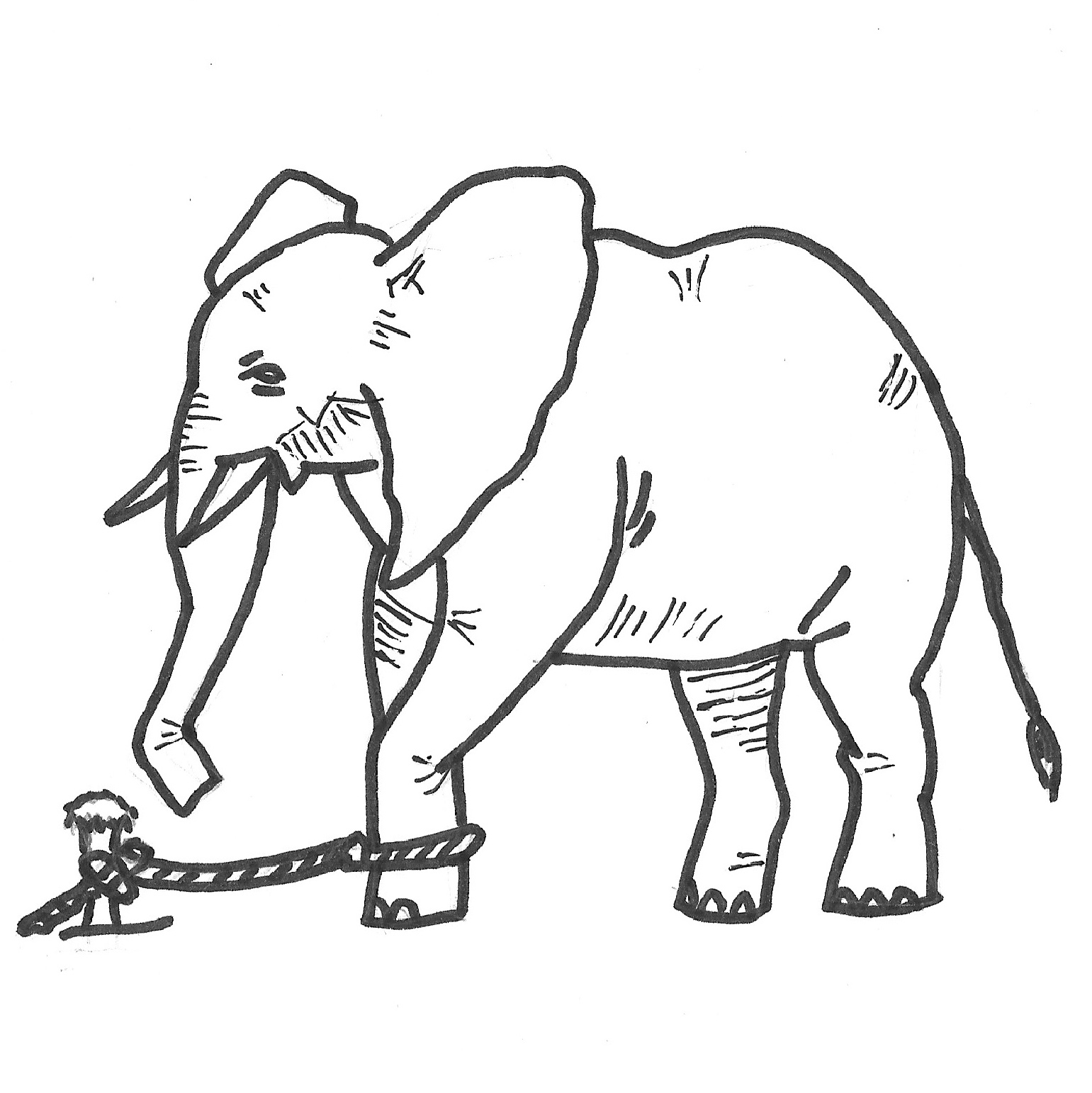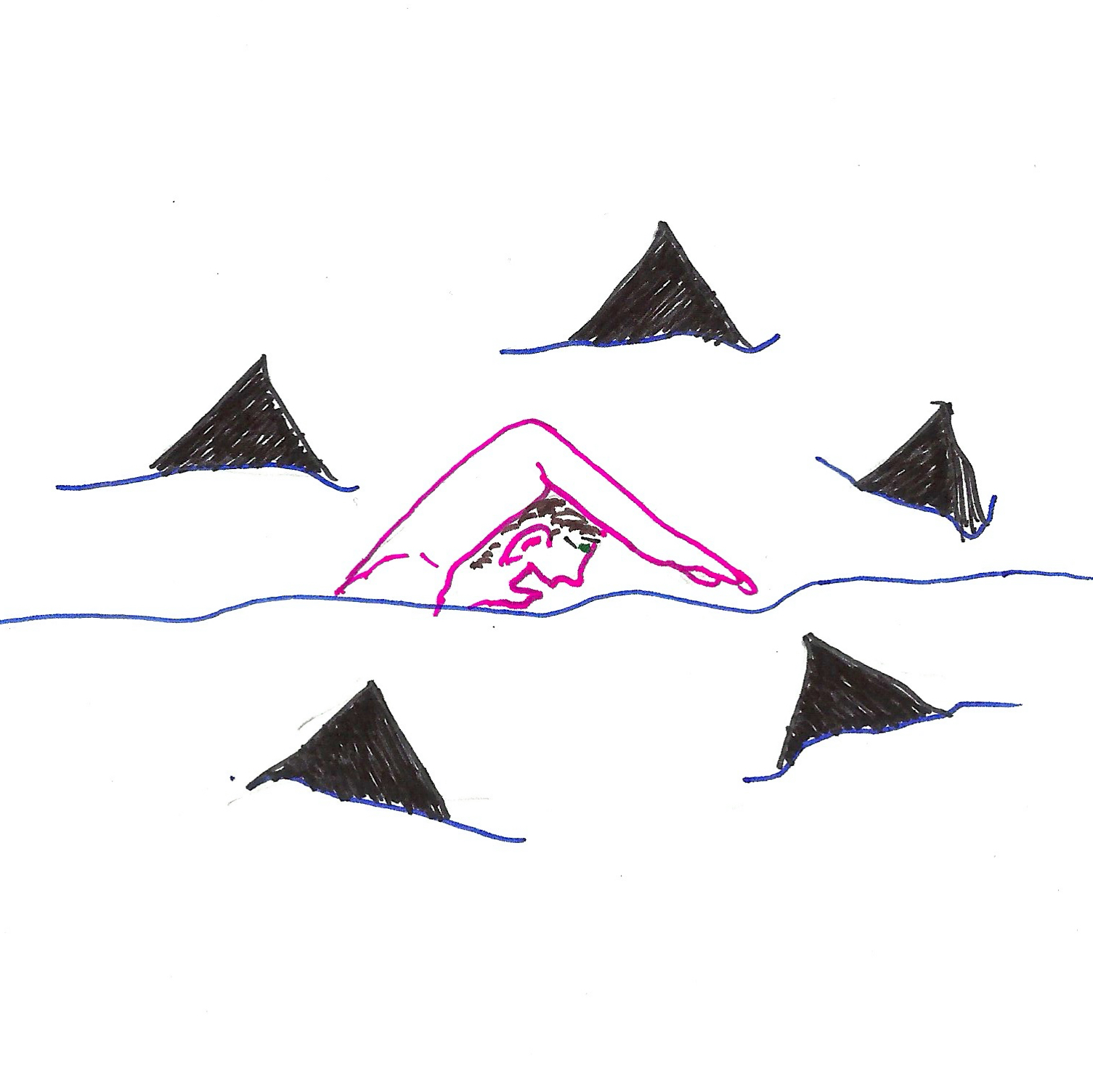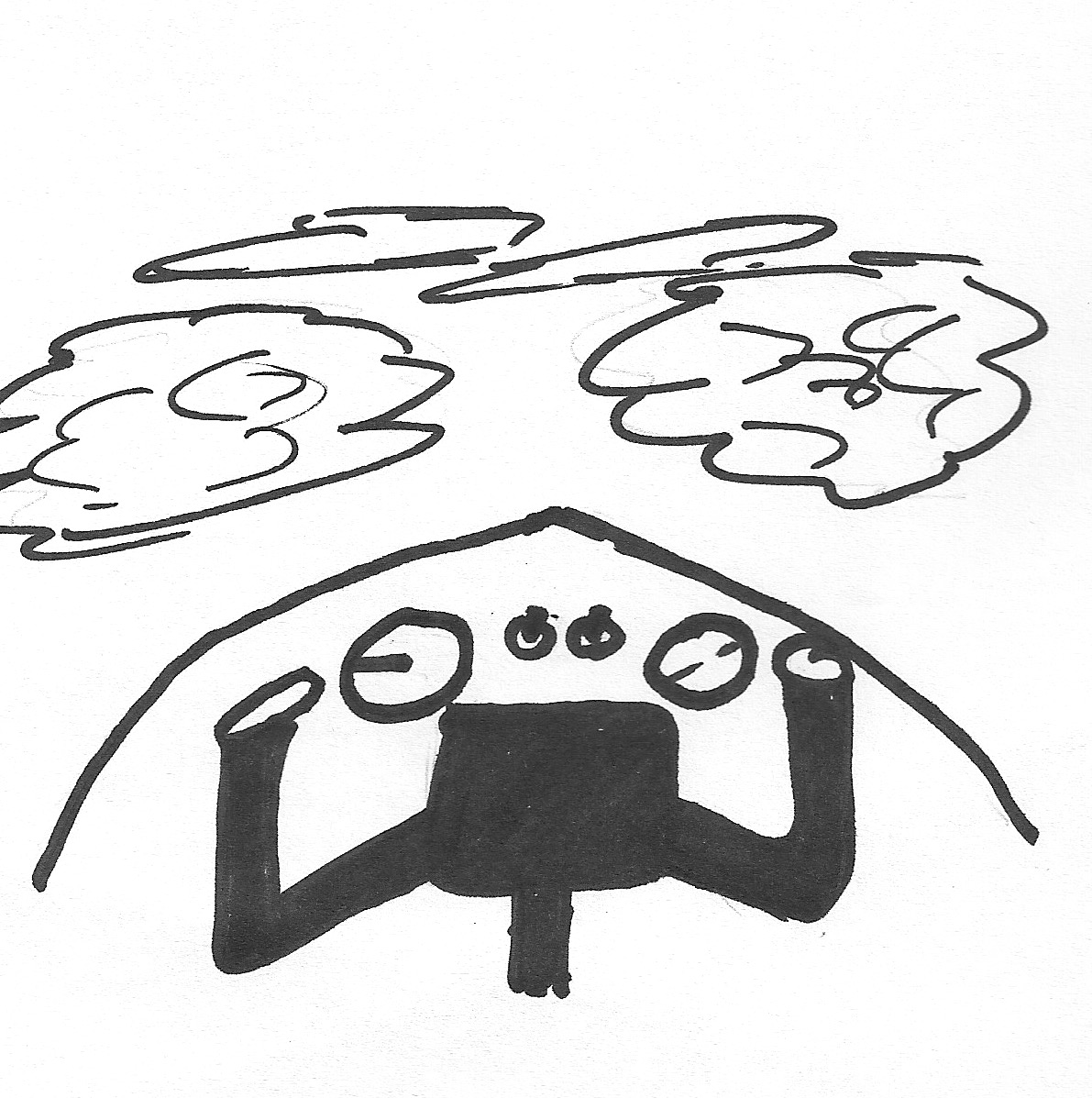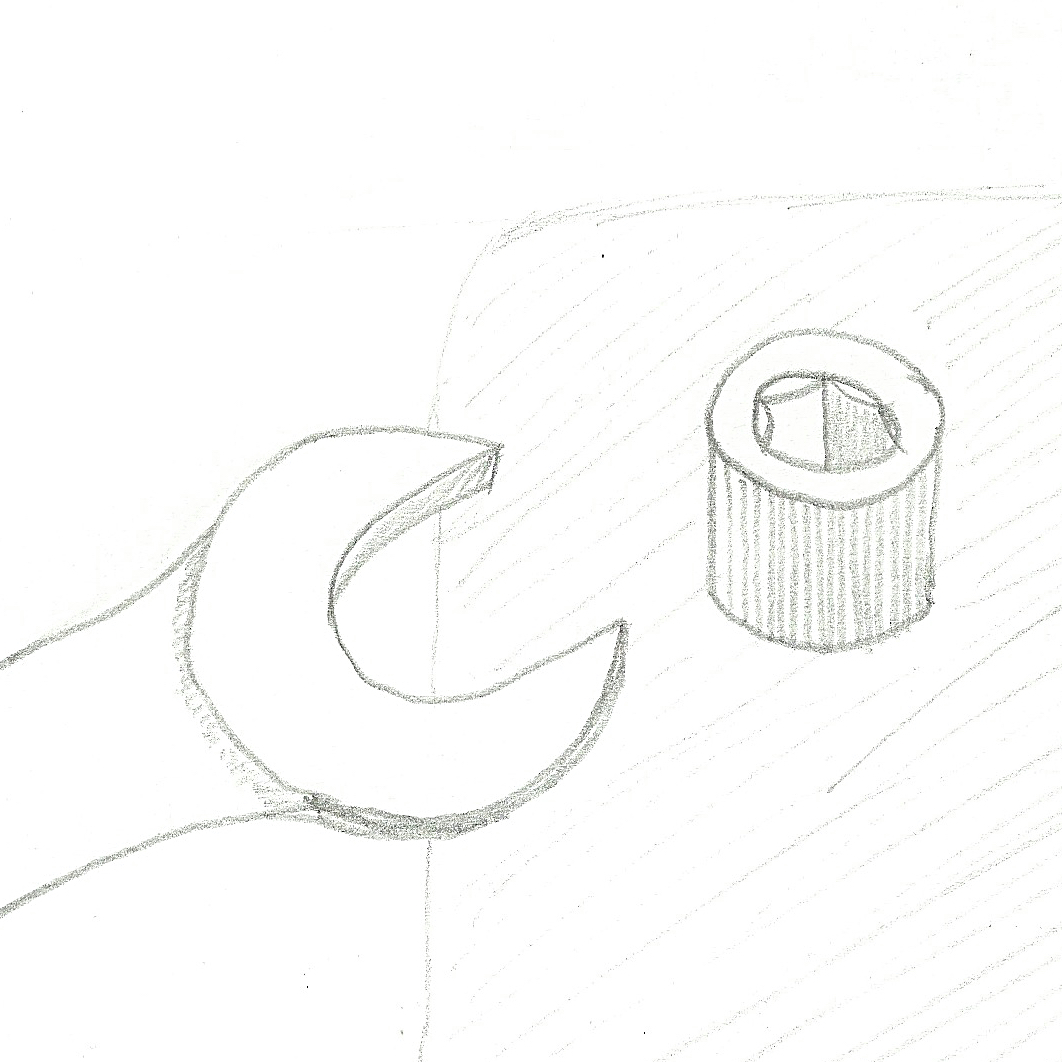If you’ve seen a tame elephant you might have wondered how it is that this, the strongest of animals, can be constrained by a flimsy rope tied to a stake. It could easily tear the stake out of the ground, or break the rope just by walking away, but it stands there, calm and docile.
It’s because there was a time when the rope was a real constraint, when the elephant was a baby and lacked the strength to break the tether. The baby elephant came to associate the rope around its leg with being unable to escape and so accepted its fate. Even though it grows bigger and stronger, it keeps that belief that the rope and stake cannot be escaped and so it never tries. It has learnt to be helpless.
Even when the rope is removed, the elephant is is often reluctant to move away and explore new territory. It prefers the comfort of staying where it is.
We can feel like this when we have left the Mothership. We are so used to having decisions made for us, having out priorities and targets given to us, having our calendar filled by obligations and our time and mood dictated by the flood of emails, texts and other messages, we find we are unused to the freedom that we now have.
Like the elephant, we feel more comfortable with the rope around our leg, constraining our possibilities but making us feel safe. We look for someone to set our priorities for us, so we let our emails drive our actions and fill our time with aimless meetings and ‘busy work’. This is our learned helplessness, conditioning from several years of being at the whim and caprice of our managers and the organisations we worked for.
It’s not surprising that we feel uncomfortable when we find ourselves free to decide what we do and when we do it. We now have an unlimited number of choices, of possibilities, of options and we simply do not know how to cope with it. In fact, though an effect known as the Paradox of Choice, it makes us anxious. More than a few choices causes us distress, which rises as the number choices increase. Having unlimited choice can max out our anxiety.
Freedom. It’s bloody terrifying. Well, they didn’t tell us that when we were tied down to our day jobs, did they? Now we have escaped the treadmill we are stressed and anxious because, well, we’ve escaped the treadmill. Marvellous.
The good news is that this fear of freedom is temporary. Once you have become clear on what your Post-Executive self and lifestyle is going to be, then you will naturally develop your own goals, make you own priorities, and move into action.
Some of us can be paralysed by this freedom, however, and get stuck for a while. It’s a good idea, therefore, to create some temporary structure and goals to keep you occupied whilst you sort yourself out. Getting yourself fit, starting a creative project, learning a new skill; these types of short-term goals create commitments that put some boundaries around your choices and stop you being overwhelmed by them. That, in turn, dials down the anxiety and gives you the mental space to work out what your Post-executive future is going to be.



